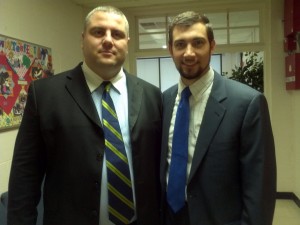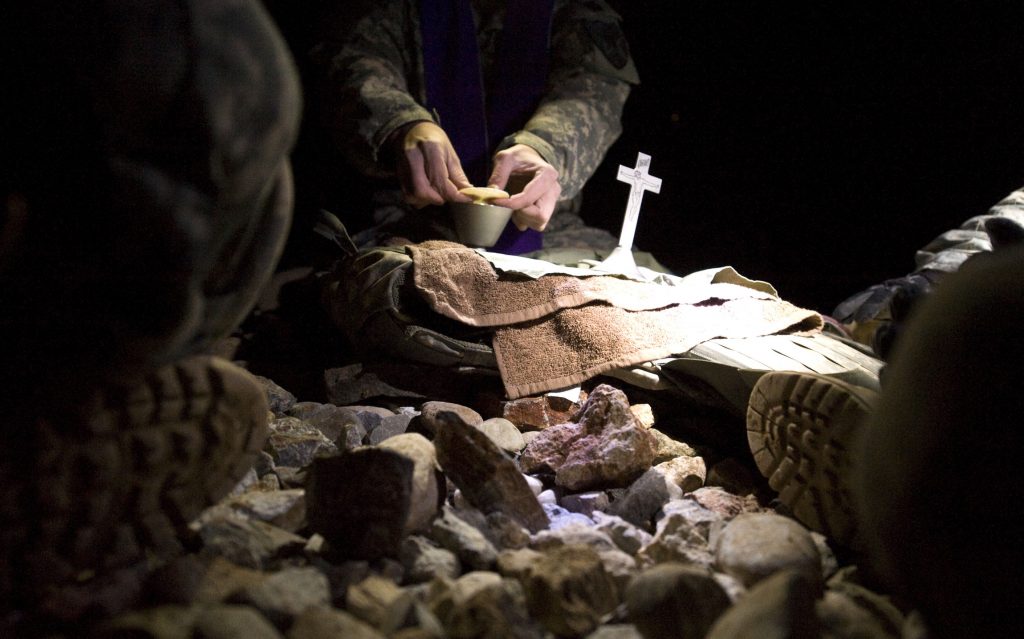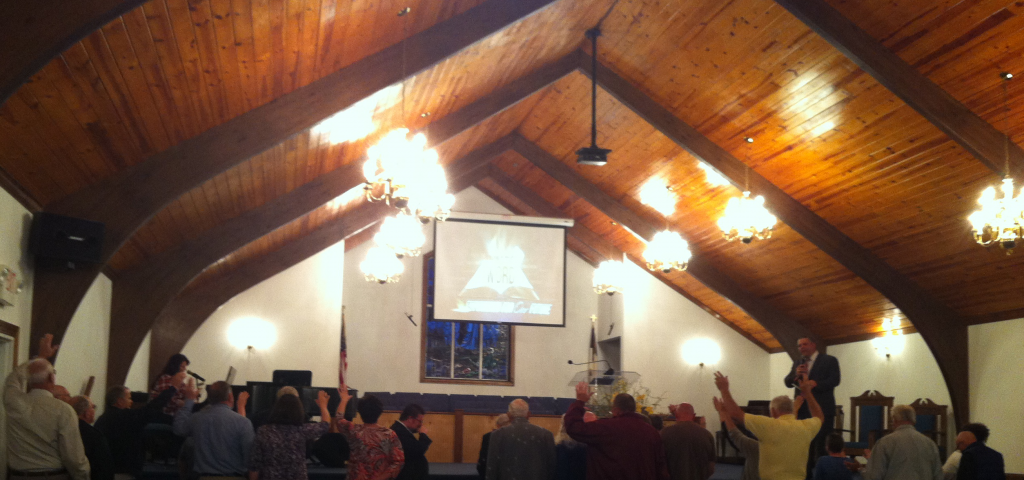EU Referendum
by David Hathaway
I feel that I must write to you, urging you to pray. Yesterday I took part in two TV programmes regarding the referendum which will be broadcast on Revelation TV before June 23rd.
I am greatly troubled by the debate on both sides of the referendum on the EU. Neither side is dealing with the major issues, with claim and counter claim covering the main issues with a smoke screen, so that the public are being totally deceived. The two main issues being batted over the net are migration and the economy.
Migration is an issue so big that it dwarfs all other topics. The EU cannot handle this, it is not a political or military problem. Its root and answer is totally spiritual. Neither Britain nor the EU can solve this without God – but to accept Moslem countries such as 78 million Turks into ‘Christian’ Europe, either now or in the future -will create terrorism because our own experience is that they do not integrate, and it will bring Syria and Iraq directly on to our borders. The flood tide will be unstoppable.
The economy is also part of the smokescreen. The EU is an economic experiment which has failed. Of all the trading groups in the world, it has the lowest growth rate. Any attempt on our part to join it will inevitably bring disaster on us. Who are the economists who say that we will be worse off coming out of the EU? Why did they not foresee and warn us of the last recession in 2008?! It is no thanks to the EU and these economists that our recovery is faster and better than theirs. Proof enough that we are stronger without them.
Now for the major issue. If we remain in the EU we will have to surrender, not just sovereignty, but all democracy.
The EU is not democratic in any way. Just as under communism, the EU ‘parliament’ only votes through the issues presented to them by unseen, unelected ‘leaders’. I have known for many years that when sitting, the EU Parliament has so many pieces of legislation to pass in a limited time that there is very little discussion, so that bad laws are passed without question. Most of these issues, if brought before our Parliament, would be subject to much discussion, debate and amendment.
The other major issue of democracy is that many of the countries in the EU have never been democratic in the sense which Britain has. Our democracy dates back 800 years to the Magna Carter. German experience of democracy only came after the last war! Previously a collection of tribes or ‘princedoms’, finally united under the Kaiser, and then under Hitler – but never experiencing democratic rule until after WWII. Most of the countries which came out of communist control had also not experienced democracy. One would question France, especially Italy which is similar to Germany, also Spain under Franco, in fact with most of the countries within the EU, if they had experienced democratic government, it was only relatively recently. Look also at history in Austria, Hungary under the Hapsburgs.
In Europe, only Britain has a long and hard won history of true democracy. How can we even contemplate surrendering 800 years of history – and of bloodshed? Did the millions who gave their lives to defeat Napoleon – the Kaiser – Hitler – and communism, die in vain? Why are we surrendering our hard won freedoms in order to be ruled by an unelected ‘cabal’ whom we don’t know? No one is telling us who are the so-called ‘visionaries’, whose experiment we are, as they seek to establish the ‘New World Order’ of a Utopia without God?
Then there is the spiritual issue. In the treaties forming the Union, they openly rejected any suggestion of recognising our Judeo/Christian heritage. The European Parliament Building in Strasburg – built to continue the rebellion against God which started in Babylon with its famous tower; the ‘Woman on the Beast’ after which Europe gets its name – ‘Europa’: these two symbols alone identify Europe with rejection of God! The EU is designed to follow the French pattern of a totally secular state. Yet former French President Chirac himself said that, ‘in establishing a totally secular state, we created a dry river bed of atheism which will draw a flood tide of militant religion.’ You only have to look at France over the last year to see how prophetic his words were – truly the biggest threat to France today is that militant religion! Then the Bible is clear that God’s judgement is over the way that we treat Israel. In Britain we have supported Israel – both historically and now today. The EU has rejected Israel and politically and financially supports the Palestinians against Israel.
These issues were all dealt with when I produced my documentary film, ‘The Rape of Europe’ (which is available to watch below), 16 years ago. The fact that the EU features in Daniel’s prophetic picture as the last empire before Christ sets up His Kingdom on earth, is important, but just evidence of the truth of Bible prophecy.
Cup & Cross Publications and Presentations
July 25, 2016 by Cup&Cross
Filed under Featured, News, Publication, Research
Cup & Cross Ministries International Presentations by Year:
2004 Postcommunist Believers in a Postmodern World at the Lilly Fellows Research Conference, Samford University
2005 Bulgarian Churches in North America at the Bulgarian Evangelical Alliance Annual Meeting – Chicago
2005 Internal Motivation at the Bulgarian Chaplaincy Association Quarterly Meeting – Bulgaria
2006 Introductory Chaplaincy Training Course at the Bulgarian Chaplaincy Association Quarterly Meeting – Bulgaria
2006 The Story of the Bulgarian Bible at Evangelical Theological Society – Washington, DC
2007 Bulgarian American Congregations: Cultural, Economic, Leadership Dimensions at Society for Pentecostal Studies
2009 Using Bible Technologies in a Censured Context: The Case of Postcommunist Bulgaria at BibleTech – Seattle
2009 How to Do Ministry on the Internet at Leadership Development Institute – Cleveland, TN
2010 The Untold Story of the Life and Ministry of Rev. Ivan Voronaev at Society for Pentecostal Studies – Minneapolis
2010 Using Computer Technologies in the Making of the New Bulgarian Translation of the Bible at BibleTech – San Jose
2010 Bulgaria: The Road to Democracy at the University of Nebraska – Lincoln, NE
2011 How to Broadcast Your Church Services for Free at Leadership Development Institute – Cleveland, TN
2011 The (un)Forgotten: The Story of Rev. Ivan Voronaev’s Children at Society for Pentecostal Studies – Memphis
2013 The Video Bible Project on the Internet at BibleTech – Seattle
2015 Historical and Doctrinal Formation of Holiness Teachings and Praxis among Bulgarian Pentecostals at Society for Pentecostal Studies at Southeastern University in Lakeland, FL
Cup & Cross Ministries International Publications by Year:
January 1994, “Going Up”, Christian News, Newspaper of the Bulgarian Church of God
1998-2003, Commentary on the Gospel of John for the Bulgarian On-Line Bible [http://www.bibliata.com]
September 2000, To Harvard and Back a Hundred Years Later (A Biographical Sketch of Stoyan K. Vatralsky)
May 2001, Pentecostal Primitivism Preserved
March 2002, Sunday School Lesson Series
April 2005-2010, Bulgarian Protestant History Series in the Bulgarian Evangelical Newspaper
April 2005-2010, About the Bible Series in the Bulgarian Evangelical Newspaper
Fall 2005, Postcommunist Believers in a Postmodern World in East-West Church & Ministry Report
Spring 2006, When East Met West in East-West Church & Ministry Report
July 2006, Roberts College in Pro & Anti Newspaper
July, 2007-2009 Letters from Bulgaria: A Series on Bulgarian Pentecostal Heritage in Pentecostal Evangel
2008 Analytical Overview and Church Planting Proposal for Bulgarian American Congregations Considering Cultural, Economic and Leadership Dimensions
2009 Pentecostal Primitivism
2010 About the Bible, a monograph on the history of the Bulgarian Bible
2011 Tetraevangelion: The Complete Works of the Gospel Writers in the New Bulgarian Translation Series (2007-2013)
2012 Bulgarian Study New Testament
2015 Complete Greek-Bulgarian Interlinear of the New Testament
Baby Bishops: Aye or Nay?
A lot was said about ordaining younger ministers around the 2012 Assembly. The proposed Item 25, properly numbered recommending lowering the age requirement to 25 years, did not pass. Naturally, discussions stopped perhaps in wait for the next Assembly. But the question still stands open before our church.
My personal opinion was like many others on the floor. If we had to wait, they should have to wait too. But this self-centered conviction changed suddenly as we were invited to preach at the Higher Praise church in Cherry Log, GA pastored by Rev. Stephen D. Henderson (age 28 at the time).
This goes against every organizational rule we have, because when an active pastor is not allowed to vote in business sessions, the congregation he pastors is left voiceless. Alas, all business carried at the assembly affects the said church, which basically has no representation in General Council. So if a church pays for its young pastor to be sent to Assembly and represent the congregation, but without the right to vote this representation does not amount to much in the end. There is something fundamentally wrong with this.
The argument of age is of course connected with one’s experience. But let’s face it, multitudes of pastors leave the ministry for one reason or another having already gained both age and experience. And unfortunately, so many of them leave exactly because of the experience they have had aging within the church. Actually in today’s world, if you have not gained enough life experience and if you don’t know yourself by age 25, you will most probably not gain what’s needed by age 30.
Therefore, if a man is appointed a pastor of a church by consideration and approval of the Administrative Bishop, he should be allowed to vote. If he is trusted enough to take care of the church’s spiritual life and business, surely he must be trusted to represent his congregation and vote toward its betterment as a part of the whole organization. Not doing so is not simply discriminative against the minister on the basis of age, but against the church he leads as well. And yes, this argument goes further to support women who have been entrusted and appointed to serve as church pastors as well.
The Road Ahead for the Master’s of Chaplaincy Ministry Program (2016-2020)
 We are proud to announce that the Master’s of Chaplaincy Ministry Program, we designed and launched in Bulgaria in 2006, has been selected to be part of the Social Service Program of New Bulgarian University. After being for years a valuable part of the regular curriculum of the Bulgarian Evangelical Theological Institute and the St. Trivelius Institute in the capital Sofia, the chaplaincy program has received the highest level of recognition as successful graduates will be finally able to receive government recognized degrees and apply their knowledge and training in chaplaincy on a professional level. The chaplaincy program can also serve within the Integration Proposal of local NATO programs and be instrumental in dealing with the enormous wave of Middle East migrants crossing through Bulgaria today.
We are proud to announce that the Master’s of Chaplaincy Ministry Program, we designed and launched in Bulgaria in 2006, has been selected to be part of the Social Service Program of New Bulgarian University. After being for years a valuable part of the regular curriculum of the Bulgarian Evangelical Theological Institute and the St. Trivelius Institute in the capital Sofia, the chaplaincy program has received the highest level of recognition as successful graduates will be finally able to receive government recognized degrees and apply their knowledge and training in chaplaincy on a professional level. The chaplaincy program can also serve within the Integration Proposal of local NATO programs and be instrumental in dealing with the enormous wave of Middle East migrants crossing through Bulgaria today.
In the beginning of the 21st century in Bulgaria, law and chaplaincy meet on the road to democracy. But before chaplaincy could be legalized completely and endorsed by the state to its full functionality, several changes must be undergone. Some of them are:
- Legal provision allowing chaplains to work as staff in the army, which guarantees the equal presence of protestant chaplains as well.
- The approval, acceptance and implementation of a NATO based model for chaplaincy within the structures of the Bulgarian Army.
- Periodical and systematic educational strategy toward chaplaincy workers among Bulgarian evangelicals.
- A paradigm for cooperation of Bulgarian chaplains from various ethnic, religious and cultural backgrounds.
- Further research publications to enhance the efficiency of chaplaincy within the Bulgarian national context.
Also important [click to read]:
- U.S. Department of State recognizes our chaplaincy efforts in Bulgaria
- Bulgarian Chaplaincy Association: Integration Proposal with Local NATO Programs
- Bulgarian Chaplaincy Association: Vision and Resolution
- Chronology of our role and involvement in developing Church of God chaplaincy in Bulgaria since 2001
- Master’s of Chaplaincy Ministry Program in Bulgaria Reflections
- The Past Decade of Chaplaincy in Bulgaria (2006-2016)
- Related Publications and Presentations by Cup & Cross Ministries International
Further Developments on the Master’s Degree of Chaplaincy Ministry in Bulgaria
 We are proud to announce that the Master’s of Chaplaincy Ministry Program, we designed and launched in Bulgaria in 2006, has been selected to be part of the Social Service Program of New Bulgarian University. After being for years a valuable part of the regular curriculum of the Bulgarian Evangelical Theological Institute and the St. Trivelius Institute in the capital Sofia, the chaplaincy program has received the highest level of recognition as successful graduates will be finally able to receive government recognized degrees and apply their knowledge and training in chaplaincy on a professional level. The chaplaincy program can also serve within the Integration Proposal of local NATO programs and be instrumental in dealing with the enormous wave of Middle East migrants crossing through Bulgaria today.
We are proud to announce that the Master’s of Chaplaincy Ministry Program, we designed and launched in Bulgaria in 2006, has been selected to be part of the Social Service Program of New Bulgarian University. After being for years a valuable part of the regular curriculum of the Bulgarian Evangelical Theological Institute and the St. Trivelius Institute in the capital Sofia, the chaplaincy program has received the highest level of recognition as successful graduates will be finally able to receive government recognized degrees and apply their knowledge and training in chaplaincy on a professional level. The chaplaincy program can also serve within the Integration Proposal of local NATO programs and be instrumental in dealing with the enormous wave of Middle East migrants crossing through Bulgaria today.
The Master’s Degree of Chaplaincy Ministry in Bulgaria was:
- Upgraded to the necessary educational and professional levels, applicable to the specific context of ministry in Bulgaria (December 2010)
- Presented in its upgraded form for approval before the educational board of BETI in 2011 (January 2011)
- Applied in its full capacity with the remaining modules in Theology (Spring 2011), Counseling (Fall 2011) and Master’s Thesis (exp. 2012)
- Transferred to the New Bulgarian University in Sofia under their new social worker studies program.
Also important [click to read]:
- U.S. Department of State recognizes our chaplaincy efforts in Bulgaria
- Bulgarian Chaplaincy Association: Integration Proposal with Local NATO Programs
- Bulgarian Chaplaincy Association: Vision and Resolution
- Chronology of our role and involvement in developing Church of God chaplaincy in Bulgaria since 2001
- Master’s of Chaplaincy Ministry Program in Bulgaria Reflections
- The Past Decade of Chaplaincy in Bulgaria (2006-2016)
- Related Publications and Presentations by Cup & Cross Ministries International
Ministering at Cheraw
Establishment of the Bulgarian Chaplaincy Association (2001-2006)
 We are proud to announce that the Master’s of Chaplaincy Ministry Program, we designed and launched in Bulgaria in 2006, has been selected to be part of the Social Service Program of New Bulgarian University. After being for years a valuable part of the regular curriculum of the Bulgarian Evangelical Theological Institute and the St. Trivelius Institute in the capital Sofia, the chaplaincy program has received the highest level of recognition as successful graduates will be finally able to receive government recognized degrees and apply their knowledge and training in chaplaincy on a professional level. The chaplaincy program can also serve within the Integration Proposal of local NATO programs and be instrumental in dealing with the enormous wave of Middle East migrants crossing through Bulgaria today.
We are proud to announce that the Master’s of Chaplaincy Ministry Program, we designed and launched in Bulgaria in 2006, has been selected to be part of the Social Service Program of New Bulgarian University. After being for years a valuable part of the regular curriculum of the Bulgarian Evangelical Theological Institute and the St. Trivelius Institute in the capital Sofia, the chaplaincy program has received the highest level of recognition as successful graduates will be finally able to receive government recognized degrees and apply their knowledge and training in chaplaincy on a professional level. The chaplaincy program can also serve within the Integration Proposal of local NATO programs and be instrumental in dealing with the enormous wave of Middle East migrants crossing through Bulgaria today.
T he Bulgarian Chaplaincy Association was envisioned in the summer of 2001 to unite all underground chaplaincy workers within the territory of Bulgaria. This included several ministries already active in Bulgaria serving in various contexts like military, healthcare, benevolence, jail system and commercial marine. The main goal was to establish a context in which all of these ministries could come together and be represented before the Bulgarian churches and government.
he Bulgarian Chaplaincy Association was envisioned in the summer of 2001 to unite all underground chaplaincy workers within the territory of Bulgaria. This included several ministries already active in Bulgaria serving in various contexts like military, healthcare, benevolence, jail system and commercial marine. The main goal was to establish a context in which all of these ministries could come together and be represented before the Bulgarian churches and government.
Although various other projects in the area of Bulgarian chaplaincy had been undertaken in previous years, the foundation initiative was formed in response to an invitation of the Church of God Chaplaincy Commission to hold a training seminar in the National Palace in the capital, Sofia in the fall of 2001. Due to the September 11th crises, the seminar was postponed and held February 16-23, 2002 under the patronage of the Bulgarian Church of God. More than 60 people, actively involved in military, hospital and prison ministries, students and church members, attended the lectures. The seminar was a stepping stone for the development of the Bulgarian Chaplaincy Association. Similar seminars were held consecutively in 2003-2004 in various locations.
The following strategic actions continued the endeavor. On August 13, 2005 a regional meeting in the Sliven area discussed the implementation of future strategies in the light of NATO’s decision to place airbases on Bulgarian soil. Individual and group meetings with chaplains from various professional fields and geographical regions followed.
Additionally, a national training seminar was held in Veliko Turnovo on October 8, 2005 where ten regional chaplaincy ministries were represented. The major issues discussed were (1) media presentation of the chaplaincy work before the major evangelical denominations in Bulgaria and the secular society, (2) dealing with stress-related issues at the work place, (3) system restructuring to meet the needs of the growing ministry and (4) the mandatory legal affairs currently restricting chaplaincy in Bulgaria. The participants discussed and approved a six-month national agenda toward solving the above problems and developing timely practical solutions. A priority on the list was the presentation of chaplaincy ministry before Bulgarian evangelical denominations.
The presentation was successfully achieved October 18, 2005 before the national leadership of the Bulgarian Evangelical Alliance. Three educational levels were proposed in the area of chaplaincy: candidate chaplains, church and government.
A consecutive regional meeting on October 23, 2005 in Nova Zagora addressed current dilemmas and outlined the necessary steps to complete the above educational strategy. The first goal was to develop a basic chaplaincy course for the Bulgarian Evangelical Theological Institute. The course was designed in the winter of 2005-2006 and after a series of meetings with denominational leaders and educational representatives, was submitted to the board of directors of the Bulgarian Evangelical Theological Institute on June 12, 2006. Prior to its submission, the course was presented in a pilot form to the regional directors of the Ministry to the Military at a training seminar in Veliko Tarnovo on April 8-10, 2006. The basic chaplaincy course designed by the Bulgarian Chaplaincy Association was scheduled to be taught in the fall semester of 2006 and plans were set to include it in the larger scope of the master’s level chaplaincy program with the Bulgarian Evangelical Theological Institute in 2007.
After much anticipation, on August 19, 2006 in the city of Yambol, the Bulgarian Chaplaincy Association called a founders meeting to discuss its legalization by the Bulgarian government. Active chaplains from various fields, ministers, pastors and scholars were present at the meeting to represent over 200 Bulgarians nationally involved in chaplaincy ministry. An official resolution was accepted and signed by the delegates to become the establishing document of the Bulgarian Chaplaincy Association. With this event, the Bulgarian Chaplaincy Association, which began in 2001 and has been instrumental in creating, recognizing and implementing such opportunities for ministry in the military as well as other fields of chaplaincy, has begun its final approach toward becoming a legal non-government organization active within the territory of Bulgaria.
Also important [click to read]:
- U.S. Department of State recognizes our chaplaincy efforts in Bulgaria
- Bulgarian Chaplaincy Association: Integration Proposal with Local NATO Programs
- Bulgarian Chaplaincy Association: Vision and Resolution
- Chronology of our role and involvement in developing Church of God chaplaincy in Bulgaria since 2001
- Master’s of Chaplaincy Ministry Program in Bulgaria Reflections
- The Past Decade of Chaplaincy in Bulgaria (2006-2016)
- Related Publications and Presentations by Cup & Cross Ministries International










